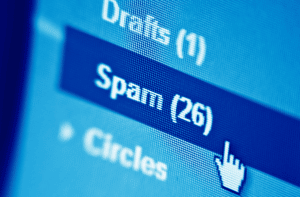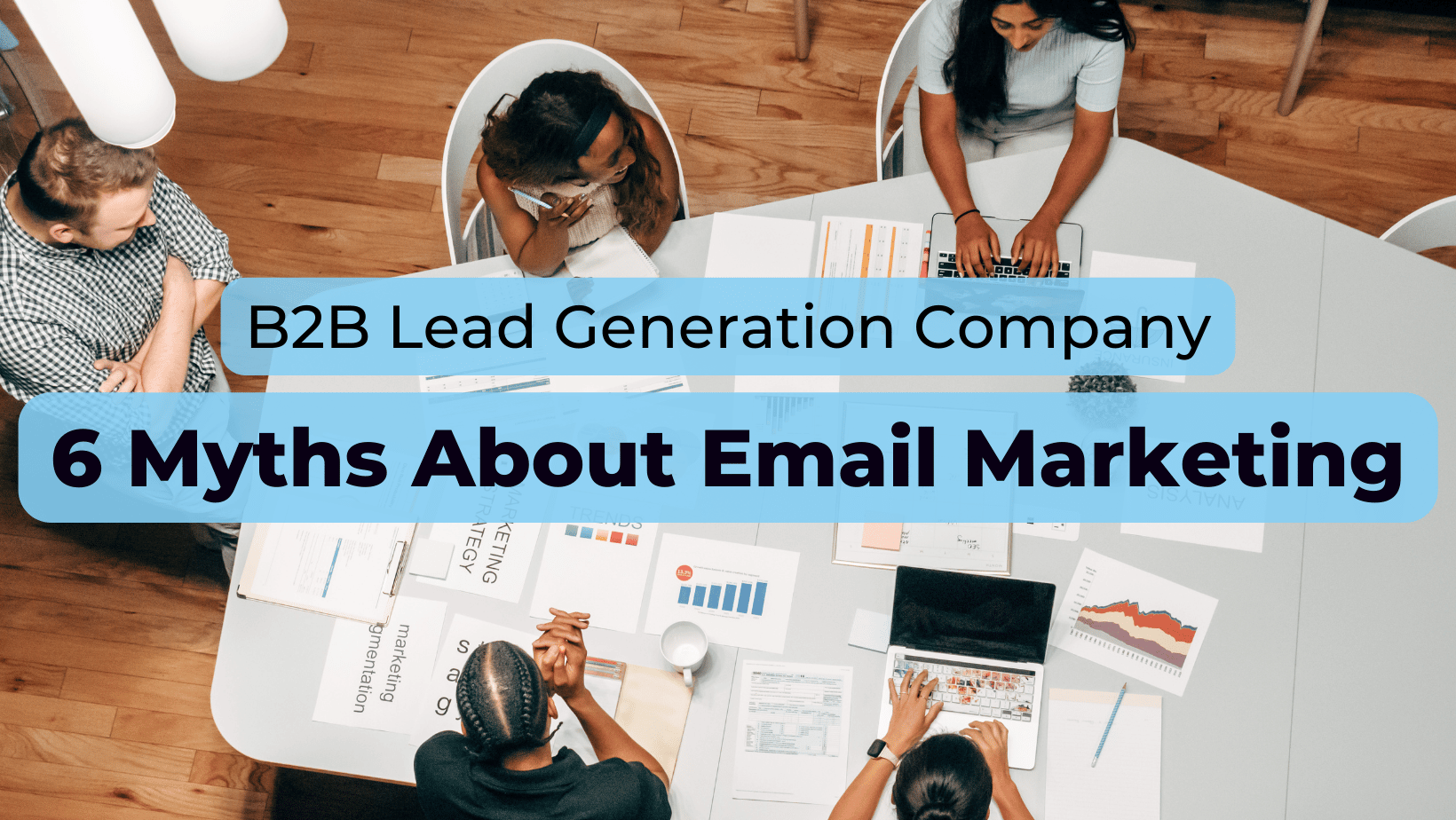B2B Lead Generation Company: Email Myths
Until you’ve actually had experience with it, email marketing can be very hard to master, even for an established B2B lead generation company. And what makes it even harder is that there are a number of myths out there when it comes to this form of marketing. Many of these myths are so widely perpetuated that, to most people, launching a B2B email marketing campaign might seem ultimately futile.
The truth is that a lot of those myths are either greatly outdated, or entirely untrue. In today’s blog, we’ll be debunking some of the most common myths you might have heard in regards to email marketing.

Myth: A Big Mailing List is Essential for a B2B Lead Generation Company
It’s often assumed that without a big mailing list, you can’t have much of an impact via email marketing. This can lead to a lot of businesses trying desperately to gather as many subscribers as they possibly can- even if they’re getting those emails from illegitimate sources. It’s important not to focus solely on quantity. If you have 10 subscribers who are actually going to care about your content, this will be far more effective than having 1,000 subscribers who want nothing to do with you. A small and active list is categorically of better value to your brand.
Myth: GDPR Makes Email Marketing at a B2B Lead Generation Company Impossible
Amidst the dawn of GDPR (General Data Protection Regulation), the world of email marketers were justifiably concerned that the regulations would have a negative impact on their email return-on-investment.
In reality, that was never really the case. Research from Litmus shows that the average ROI in the United States is actually lower than that of countries in the EU, even though these kinds of regulations are a lot stricter in the UK.
Myth: Avoid the Word ‘Free’ at All Costs
One of the most widely spread beliefs about email marketing is that there are certain words which, if included in the email’s subject line, will send that email right to spam.
While there are certainly words that will trigger an email provider’s filtering system, it tends not to be so cut and dry. So, while it is probably best to avoid using words like ‘free’ in the subject line of your emails, it would be rare that such a practice would net an open rate of 0. Your domain’s reputation rides on far more than just trigger words.
Myth: Email Marketing is Just an Add-on
Rather than being an add-on, B2B email marketing can often be the main event of your campaign. If you have a strong mailing list, email marketing can drive traffic, as well as generate, convert, and nurture leads. When used correctly, it can be a powerful tool.

Myth: Every B2B Lead Generation Company Should Send Emails on Tuesdays
It’s often said that the best day for sending marketing emails is Tuesday, often followed by Thursday, and Saturday. But while these may generally be days that see good results, it’s far from a hard and fast rule. Different businesses have wildly different audiences. It’s important, once you get into the email marketing game, to test your email sends on different days, rather than just Tuesday, Thursday, and Saturday.
Maybe you’ll start off by using Tuesday and you’ll find your emails are getting good results. But, for all you know, far better results on Wednesday could be just around the corner. Don’t limit yourself to this particular myth; you could be costing your business opens, clicks, and leads.

Myth: Automated Emails are Too Impersonal to be Effective
Many people deem ‘automated’ as synonymous with ‘impersonal’. But that’s simply not the case. Your emails can- and should- still be personalised to different segments of your audience. That way, while your audience will likely be aware that the email they’ve received wasn’t written explicitly for them, they will still be interested in what that email has to say.


Ryan Whyte is the Senior Campaign Manager where he leads a team of B2B telemarketers to deliver high-quality leads for clients. With a strong background in campaign management and a focus on driving results, Ryan is dedicated to optimising strategies that maximise client success in B2B lead generation.






















